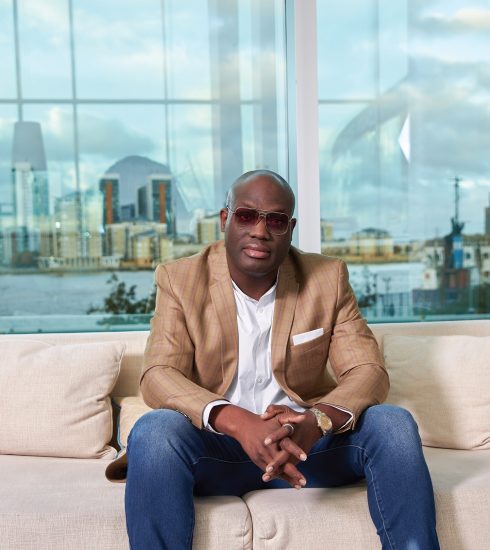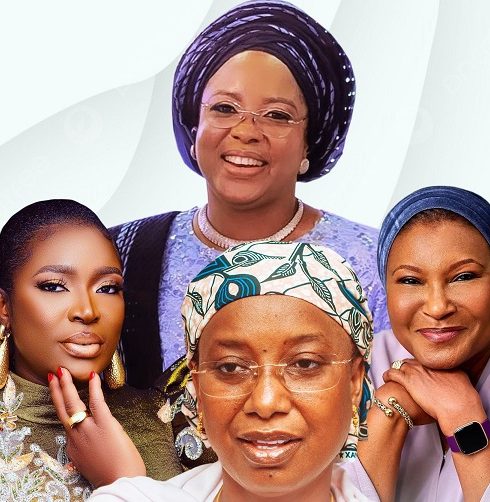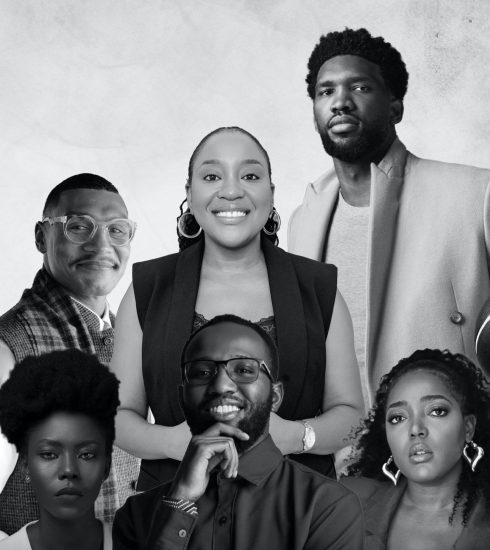Chef Tolu Eros: Thrilling Culinary Experience
Tolu Eros is a chef you can classify as top tier, not just because of the position he has attained in life but because of his enviable self-esteem. You cannot give what you do not have, and everything Eros has given to the world came from within him. From knowing what he wants to how to treat and be treated by people, this amiable chef is everything he thinks he is and even more. In an interview with THEWILL DOWNTOWN’s Ijeoma Ezeanyika, he talks about his culinary journey, proud chef moments, and a snippet of his life outside being a chef.
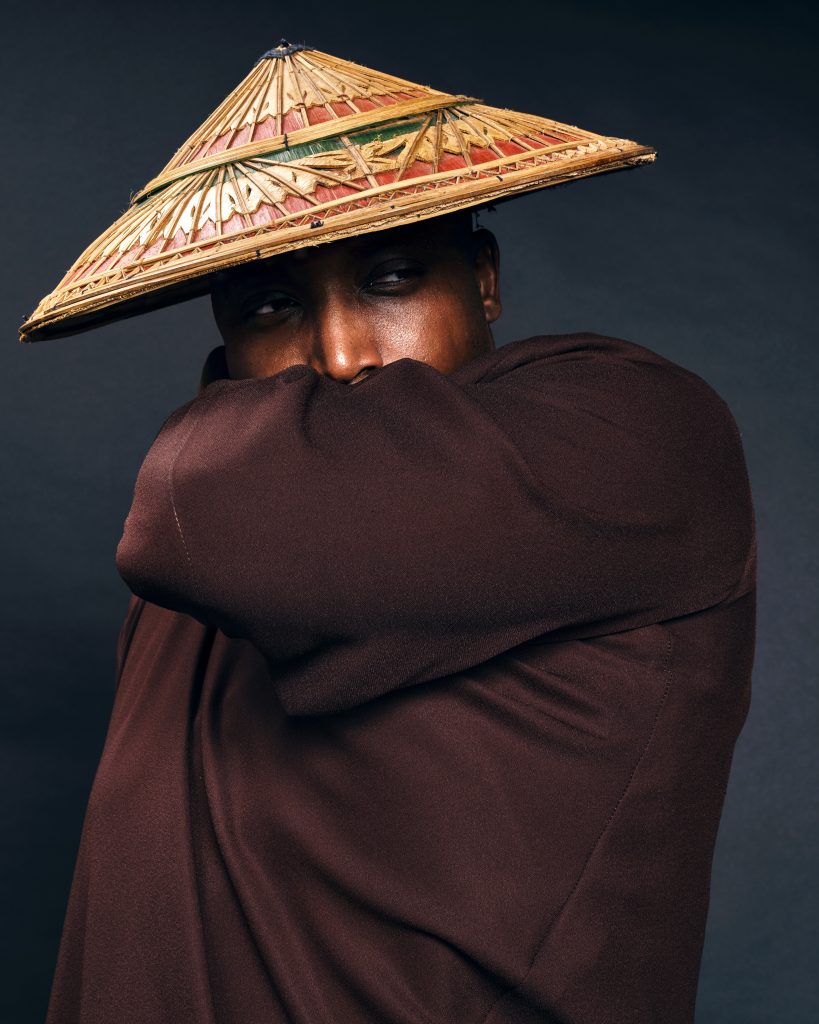
Passion is mainly fuelled by something; there is always a drive, a motivational force behind what we are passionate about. What is the driving force behind your passion for cooking?
Making a difference! Making a difference in the culinary arts space and putting West African and Nigerian food on the global map. I’m intentional about using my creations as a bridge that connects the world to my culture (our culture) while also using myself as a point of contact for other aspiring African chefs to see what is possible and to keep striving for excellence.
When you started cooking, did you ever envision yourself being where you are today? How does it feel to be here?
Absolutely.
I always knew that I was going to be successful at some point. As a matter of fact, I don’t think that I’ve achieved the level of success that I aspire to. I know I haven’t achieved the level of success I want, but it feels good to be here. And I know that the journey has just started, and I’m excited for what’s to come by the grace of God.
You studied International Business Management in the United Kingdom. Does this have anything to do with your career as a chef?
Absolutely! Studying International Business Management gives you a general, holistic idea and understanding of business and International business management. Particularly, it gives you an understanding of emerging markets, the threats to entry, your strengths as an individual or an organisation, and how to navigate and turn those threats into strengths and opportunities. Furthermore, it included everything from finance, which is involved in running a culinary organisation, to marketing and branding, which is highly important as a Chef.
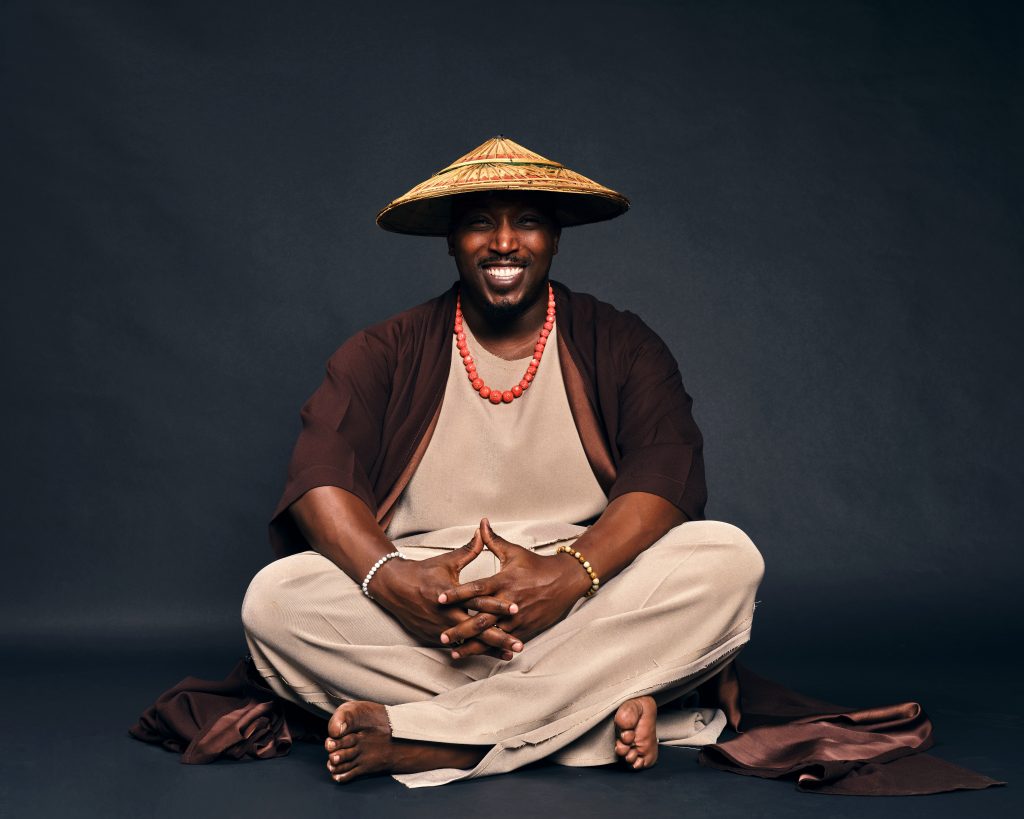
What is Chef Tolu Eros like in the kitchen when you have your knife and spoon in your hands?
Chef Tolu Eros is very creative. A perfectionist who strives for perfection but also understands that there is beauty in imperfection. And so, in the kitchen, you’ll find me being fun, taking risks, trying out new things and finding a solution to every single problem.
What is that one dish you are always the most excited to prepare and why?
The honest truth is the unity jollof rice. The unity jollof rice because that one jollof rice is a labour of love. I call it the unity jollof rice because it brings together several nations in one. You must have heard about the friendly feud between the Ghanaian and Nigerian jollof. Now, all the other nations have joined the group chat. Lol. The unity jollof rice combines elements of some of them into one, allowing them to be celebrated together and be unified. It’s also symbolic for me in the sense that we are stronger when we come together.
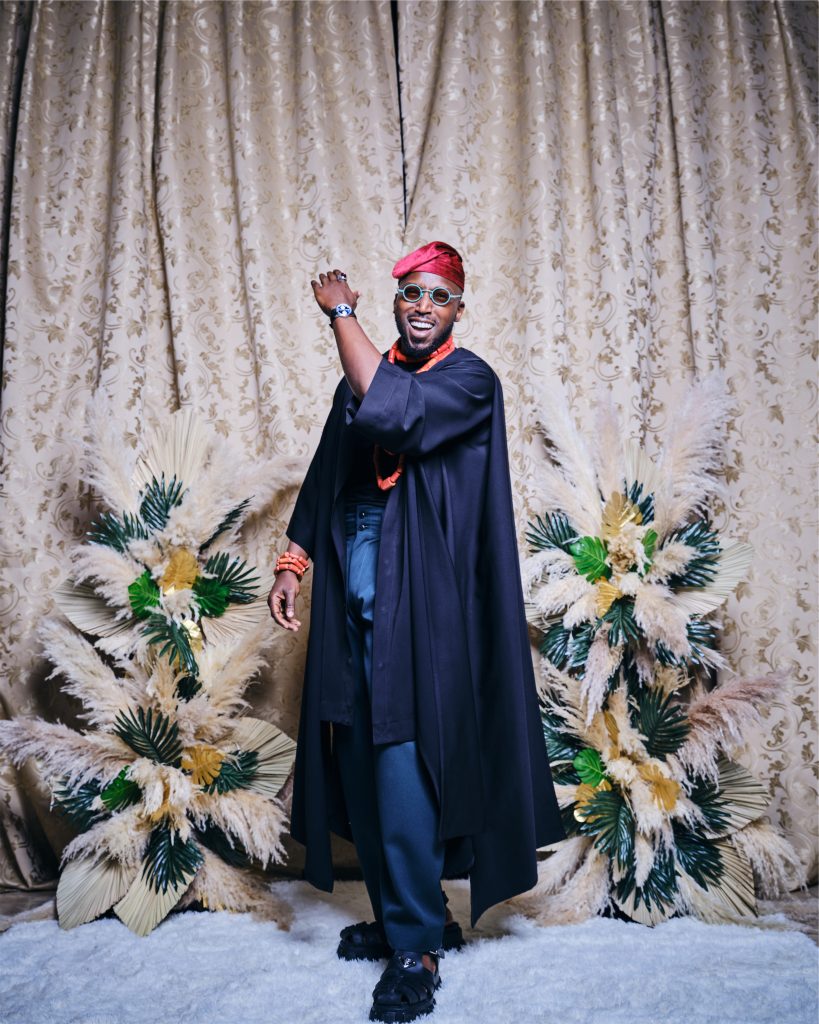
It is evident that you are interested in sharing West African cuisine with the rest of the world. Why?
Well, I think it’s about time West African cuisine got its place on the global food map. The likes of China, Italy, Japan, and France have all gotten their accolades when it comes to cuisine, but Nigerians and West Africans, not so much. My passion is putting West African and Nigerian cuisine on the Global Food Map — to debunk the idea that our food is too spicy, oily, and unrefined. To make it accessible, to make it look presentable, and to make it one of the best and sought-after cuisines in the world.
Everyone has that one person they look up to in admiration. Is there anyone like that for you, and why?
Yes, two people in particular, Chef Jose Andres, who also has a very similar immigrant story and has not only put the cuisine of his culture on the global food map, But also lent a voice to hunger by creating the World Central Kitchen, which literally feeds the world especially in times of crisis. Chef Andres has made a mark in the culinary space and inspires me daily. Also, Chef Wolfgang Puck is very similar; he has created multiple businesses providing work for large numbers of people and adding his own value to the food chain.
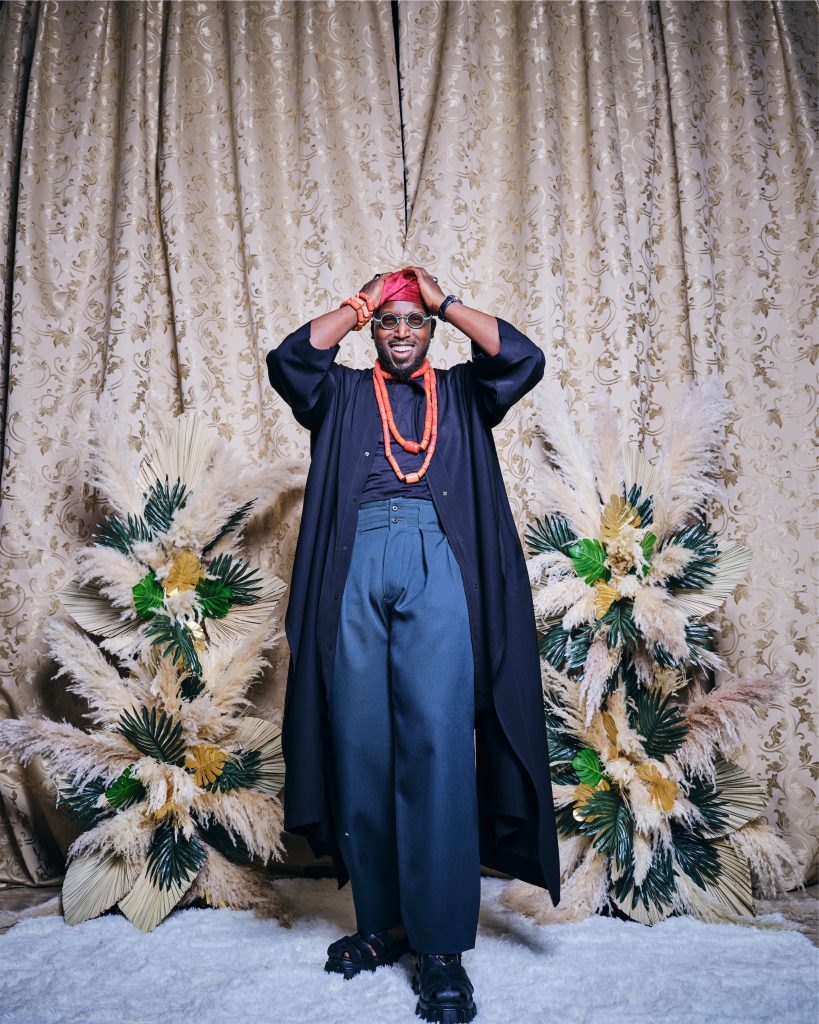
Just like music collaborations, is there any chef you would love to be in the kitchen with and why?
The two I just mentioned, Chef Jose Andres and Chef Wolfgang Puck, because they’re just so inspirational to me, and I love their cooking styles.
Chef Jose Andres also has some amazing projects that I am sincerely looking forward to being a part of someday. Not to say that there are no others, but I think those two are just like my true go-to.
How has it been for you managing your restaurants in different parts of the world? How do you do it?
Well, first of all is trying to find that balance between time zones. The honest truth is that it has not been easy, but with an amazing team across different parts of the world, I’ve been able to achieve a certain level of success. Also, managing a very stringent work-life balance allows me to have a life but also work. Taking breaks when necessary and relying on my team to execute without me necessarily micro-managing them.
You know, I’m only as strong as my team.
You are known by almost everyone for your culinary skills, even nicknamed the billionaire chef, but aside from that, what are the other sides of you, you would love the world to know?
I like to think that I’m a very fashionable guy. I definitely would find myself working in fashion. I also have an acting side to me; it is definitely one of my life goals to play a role one day. I used to sing back in the day. I don’t know if that is necessarily something I want to pursue, but I used to be an aspiring musician once upon a time. Aside from that, one of my major strengths is creativity and branding. I would always say to my team that if I weren’t a culinary artist, I’d be a brand strategist. I love the idea of creating brands, bringing them to life, and being able to communicate that to the end users.
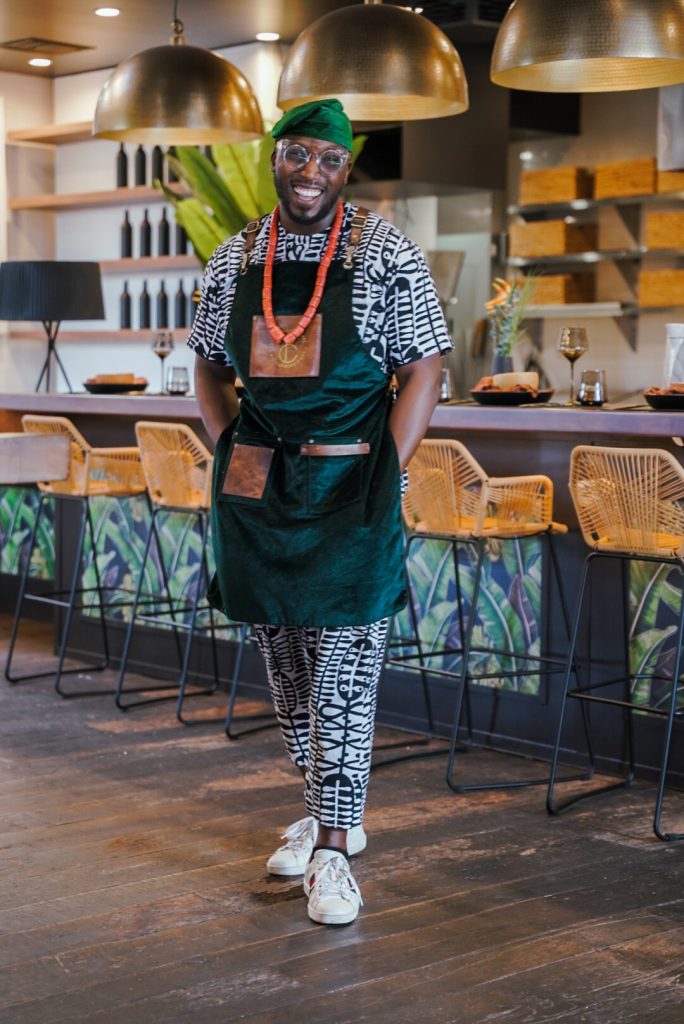
At the beginning of your journey, what were your career goals, and how far have you come in achieving them?
My goal was always to put West African and Nigerian cuisine on the global food map and consistently deliver an unforgettable culinary experience. I would say that I’ve gone very far right now, especially in the United States of America; Nigerian food has been given a space, particularly in California. There’s a lot more work to be done, and I’m hoping that over the next couple of years, we’ll be able to do more, not just in America but in Europe and Asia.
Describe an instance where you had to prepare a meal under pressure. Detail your experience from start to finish.
If I’m being honest, this is a daily thing. But I think one of the most recent ones I’ve had to face was when I had a guest who didn’t eat sugar. They could not consume any sugar, was gluten-free and Hallal, so we could not use any sort of shellfish. The menu was a seven-course, so for every single course, we had to create an alternative that gave the same experience in the same time frame that everyone else was expecting their dish to come out.
I did that by constantly thinking on my feet and working with my team to come up with ideas to be able to deliver the dishes without losing the integrity of the menu. It ended up being a beautiful dinner all around.
When was your proudest moment as a chef?
Um, my proudest moments as a chef. Hmm. There have been a lot of moments to be proud of, you know. I think the first one was when CNN did a feature on me in 2015, listing me as “the rising star out of the African food scene”, and Forbes wrote an article naming me “the man who knows what billionaires eat for lunch”.
And I think also being given the 01 visa listing as an alien of extraordinary abilities, and then carrying on to Hollywood and opening a private dining room that was listed as “Los Angeles most exciting pop-up restaurant”, and then even going on to open a test of concept restaurant ILE bistro that received multiple accolades from the press as top restaurant, best new restaurant exciting, best new dish, things like that. I’m grateful.
I think of recently receiving the global ambassadorship from JPMorgan Chase and the Global Ambassadorship from the (RED) Foundation, an HIV/AIDS foundation by Bono. I’d say these count as some of my most recent successes and proud moments.
Is there a dish you enjoy cooking the least? What do you do to ensure it is still prepared properly?
To be honest, anything that I do not like to eat, I do not cook, PERIOD! So I’d say there’s never really going to be a time when you will catch me in the kitchen cooking something I do not enjoy cooking. Like, what would be the point of that? To satisfy a client’s request? I’ll politely point them in the right direction of someone who makes it. I always say, “Cook what you love to cook; cook what you love to eat”.
How do you handle multicultural or multilingual employees?
By treating everyone as one and by making sure that everyone understands that they are a massive part of the team.
By also using technology in communication, you know, there are always options, like Google Translate. But generally, I try to make sure that they’re comfortable and they understand what the goal is.
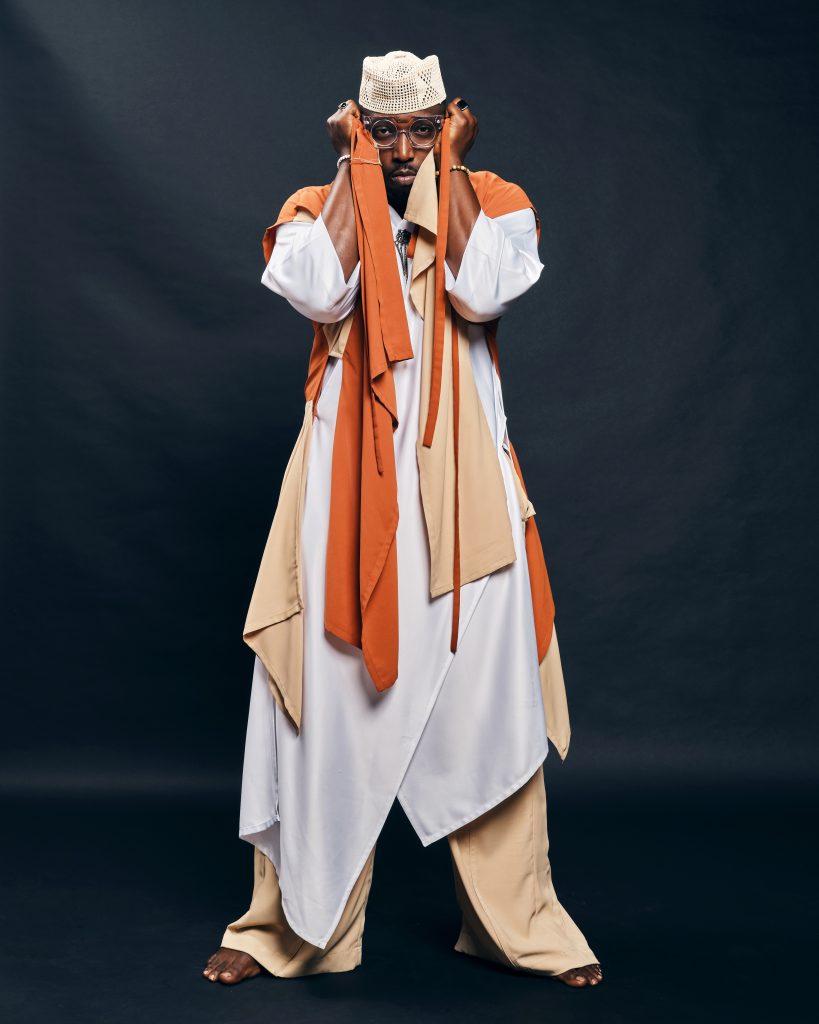
Tell me about the time you had to handle a difficult employee.
That happens a lot, you know.
There are so many different people and temperaments in and around the kitchen. Not to pinpoint anyone, but recently, there was a team member who was dealing with a personal issue and was taking it out on the rest of the kitchen and the rest of the team, including myself, snapping a lot. My solution at the time was to have him step out of the kitchen. To go catch a breath, walk around and then come back with a better attitude into the kitchen.
What can’t you live without in the kitchen?
I don’t think I can live without fire in the kitchen.
What can I do without in the kitchen? Maybe water. Because if I didn’t have water in the kitchen, I don’t think I’d be able to wash my hands. I might be able to wear gloves, but I’ll be unable to wash anything, so I’ll probably say water. I feel like there is always a substitute for everything else.
What qualities do you believe make a good chef?
A great sense of taste and sense of smell. Those two things are the most important as far as I’m concerned.
You are opening an elevated fast-casual restaurant in Los Angeles. What inspired the idea?
I opened a test of concept earlier this year, and now we have moved into the next phase of that, which is a fundraise. And what inspired this was literally the need for a West African fast-casual restaurant that globally represents the culture; think Chipotle, think Cava, that was the inspiration — to give people access to Nigerian, West African food, quick, consistent, good quality and affordable.
How many stores do you plan to roll out with the fast-casual restaurant concept?
I mean, to be honest, I would leave that answer to our operating partners, but I think off the top of my head, I have somewhere around the 300 number.




